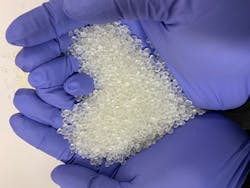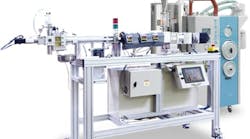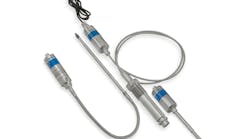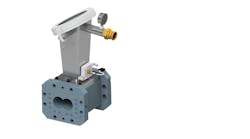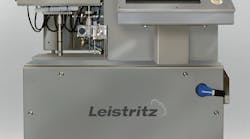Kraton Corp. recently launched its CirKular+ additives, which act as compatibilizers and enhance the performance of a wide range of materials.
“Our CirKular+ additive products enable us to meet increasing consumer demand, performance requirements, and emerging regulations for circular plastics solutions from end product design [for] recyclability to cost efficiency,” said Bob Hall, senior director of global marketing. “This will allow us to support the plastic value chain’s mission to reduce virgin plastic use while increasing product recyclability and post-consumer resin (PCR) content.”
CirKular+ products can be used with PCR and post-industrial plastic recycling streams, bioplastics, and in a combination of virgin and recycled plastics, according to the company. The additives assist with the recycling of typically non-compatible materials and difficult-to-recycle engineering polymers.
PCR polyolefin modification with CirKular+ additives results in enhanced mechanical properties and end-product recyclability.
The additives are a family of block copolymers based on polystyrene (PS) and polyethylene (PE)/butylene rubber. The company manufactures them in North America and supplies them in the form of pellets in foil-lined bags.
In July, Kraton rolled out the first three formulations in the line. CirKular+ C1000 and CirKular+ C1010 can be used with a wide range of polyolefins, PS/high-impact PS (HIPS), ethylene vinyl alcohol (EVOH), wood fiber and cellulose, polycarbonate and contaminants such as polyethylene terephthalate (PET), polyamides (PAs) and ABS.
C1000 and C1010 are FDA-cleared for food contact applications. While similar, the two products have different properties for melt flow rate, tensile strength and hardness.
The third offering is a formulation of CirKular+ C1010 that includes 50 percent post-industrial content.
“The CirKular+ line includes effective compatibilizers for plastics upcycling that increases homogeneity of the contaminated recycled waste streams with excellent compatibility across different resins, including polyolefins, PET, ABS, PS, PA, PC, nylon, etc.,” the company said. “High product efficiency improves cost-effective performance at low dosage. The benefit of the CirKular+ compatibilization series is its multi-resin compatibility, which allows superior compatibilization and performance across different recycling streams and materials, whether it is polypropylene/PA blend or polyolefins contaminated with PET or nylon.”
All three products work at a maximum operating temperature of 536 degrees Fahrenheit.
The CirKular+ Compatibilization Series can be used in compounding, dry blending, extrusion, injection molding, blow molding, film production and thermoforming. Potential applications include rigid packaging (food or nonfood), flexible packaging and films, automotive parts, consumer products, industrial manufacturing, and building and construction.
Kraton in early October had planned to begin selling performance enhancement products as part of the CirKular+ line. The C2000 additive is used to enhance the properties of polyolefins, PS, HIPS, ethylene vinyl acetate, EVOH and polyvinyl alcohol. Its C3000 additive can be used with polyolefins, PS and HIPS. The maximum processing temperature for C2000 is 536 degrees Fahrenheit. The maximum processing temperature for C3000 is 392 degrees Fahrenheit. C2000 also has a higher melt-flow rate.
The loading dosage varies but typically ranges from 3 percent to 10 percent by weight.
Bruce Geiselman, senior staff reporter
Kraton Corp., Houston, https://kraton.com/products/plastics/cirkularplus.php
